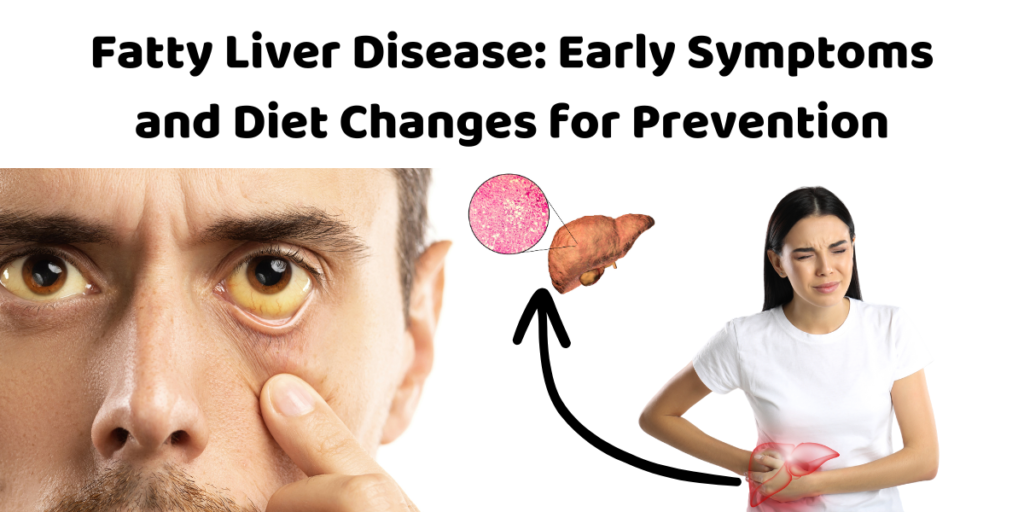Fatty Liver Disease: Early Symptoms and Diet Changes for Prevention
Fatty Liver Disease is becoming a common health issue globally, primarily due to unhealthy lifestyle habits. Understanding the early signs of fatty liver disease and making crucial dietary changes can prevent it from progressing to more severe conditions.

What is Fatty Liver Disease?
Fatty Liver Disease occurs when excess fat builds up in the liver cells. This condition is often asymptomatic in the early stages but can lead to severe complications like cirrhosis or liver failure if left untreated. There are two main types: non-alcoholic fatty liver disease (NAFLD) and alcoholic fatty liver disease (AFLD). Both types can cause significant liver damage over time.
Early Fatty Liver Symptoms to Watch For
While fatty liver symptoms might not always be obvious, there are a few signs to keep an eye on:
- Persistent fatigue
- Unexplained weight loss
- Abdominal discomfort, particularly in the upper right side
- Weakness and confusion (in advanced stages)
If you experience any of these symptoms, consult a healthcare provider to assess your liver health.
How Fatty Liver Problems Affect Overall Health
Untreated fatty liver problems can progress to more serious conditions like non-alcoholic steatohepatitis (NASH), fibrosis, or even cirrhosis, which may lead to liver failure. Fatty liver can also increase the risk of developing cardiovascular diseases and type 2 diabetes.
Diet Changes to Prevent Fatty Liver Disease
Diet plays a critical role in preventing and managing fatty liver disease. Here are some key dietary changes you can make to improve your liver health:
- Limit sugar intake: Excess sugar, especially fructose, can contribute to liver fat buildup.
- Increase fiber-rich foods: Whole grains, vegetables, and legumes help in better digestion and reducing liver fat.
- Healthy fats: Include omega-3 fatty acids found in fatty fish, nuts, and seeds, which support liver health.
- Reduce alcohol consumption: Alcohol significantly contributes to fatty liver problems.
Incorporating Regular Exercise for Fatty Liver Management
Along with dietary changes, regular physical activity helps reduce fat in the liver. Aim for at least 150 minutes of moderate exercise per week, such as brisk walking, cycling, or swimming. Exercise helps improve overall metabolic health, reducing the risk of further liver complications.
Making these lifestyle adjustments can help you manage fatty liver disease and prevent its progression. Always consult a healthcare professional for personalized guidance on managing this condition.



